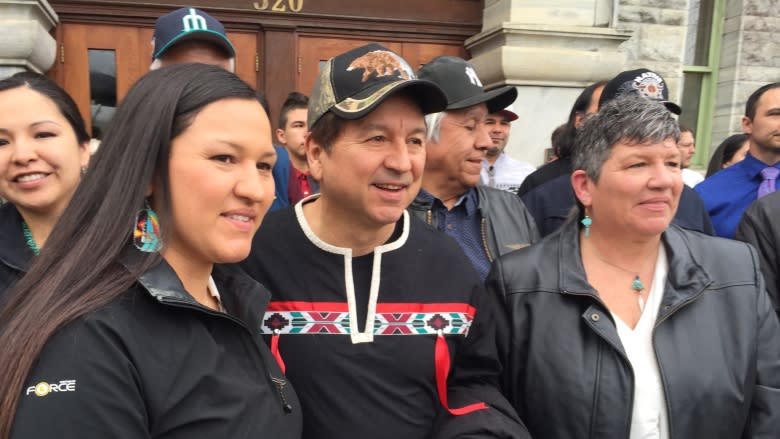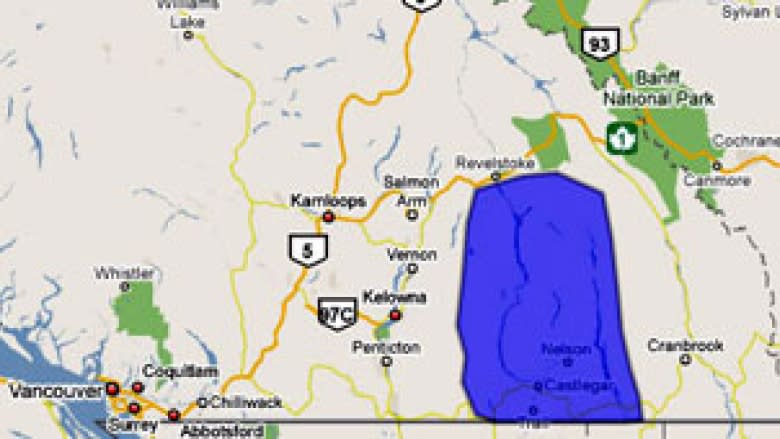Court decision may open border to First Nation hunters from U.S.
A new court ruling could make it impossible for the federal government to stop members of a First Nation who live in the U.S. from coming to B.C. to hunt, according to a former deputy minister of aboriginal affairs.
"It's unlikely that the federal government has any power to stop them from coming into Canada if they specifically want to carry out those activities," said Doug McArthur to Daybreak South host Chris Walker.
Earlier this week, a provincial court judge in Nelson, B.C., acquitted a Sinixt man from Washington State of hunting without a licence and hunting without being a resident.
Extinction challenged
Richard Desautel, 64, lives on the Colville Reservation, south of the Canada-U.S.border. He travelled to Canada to hunt in order to challenge the B.C. Wildlife Act and the government's view of the Sinixt as extinct.
Judge Lisa Mrozinsky ruled the Sinixt have not lost their connection to a huge swath of southern B.C., from Revelstoke to the U.S. border and still have Aboriginal rights to the territory.
"If his ancestors — as a tribe or a First Nation — were engaged in those kinds of activities and were present on those lands, then they do have a continuing right — as the ancestors — to harvest wildlife in accordance with their traditions," said McArthur, who in the early 1990s was B.C.'s deputy minister of aboriginal affairs, in charge of setting up the Treaty Commission.
He is currently the director of Simon Fraser University's School of Public Policy.
The federal government argued in court that the Sinixt voluntarily abandoned their lands. They were declared extinct for the purposes of the Indian Act in 1956.
But the court was presented with evidence that the Sinixt were forced off their land and didn't leave willingly.
"They were under a huge amount of pressure to move south and get off those lands but they never did abandon them voluntarily," said McArthur.
Most people of Sinixt descent now live in Washington and Desautel's defence was funded by by the U.S.-based Colville Confederated Tribes.
Appeal likely
So, while the Sinixt may have won the right to come up to Canada and hunt, McArthur said it's unlikely they will be able to claim many other rights.
"It's difficult to imagine they would have anything like the rights other First Nations have, such as aspects of self-government or control over the management of those lands and so on."
Even the right to hunt may not last. McArthur suspects this case will ultimately end up in front of the Supreme Court of Canada.
"It will almost certainly be appealed," he said.
With files from Daybreak South
To hear the full interview listen to audio labelled: Court decision may open border to First Nation hunters from U.S.



